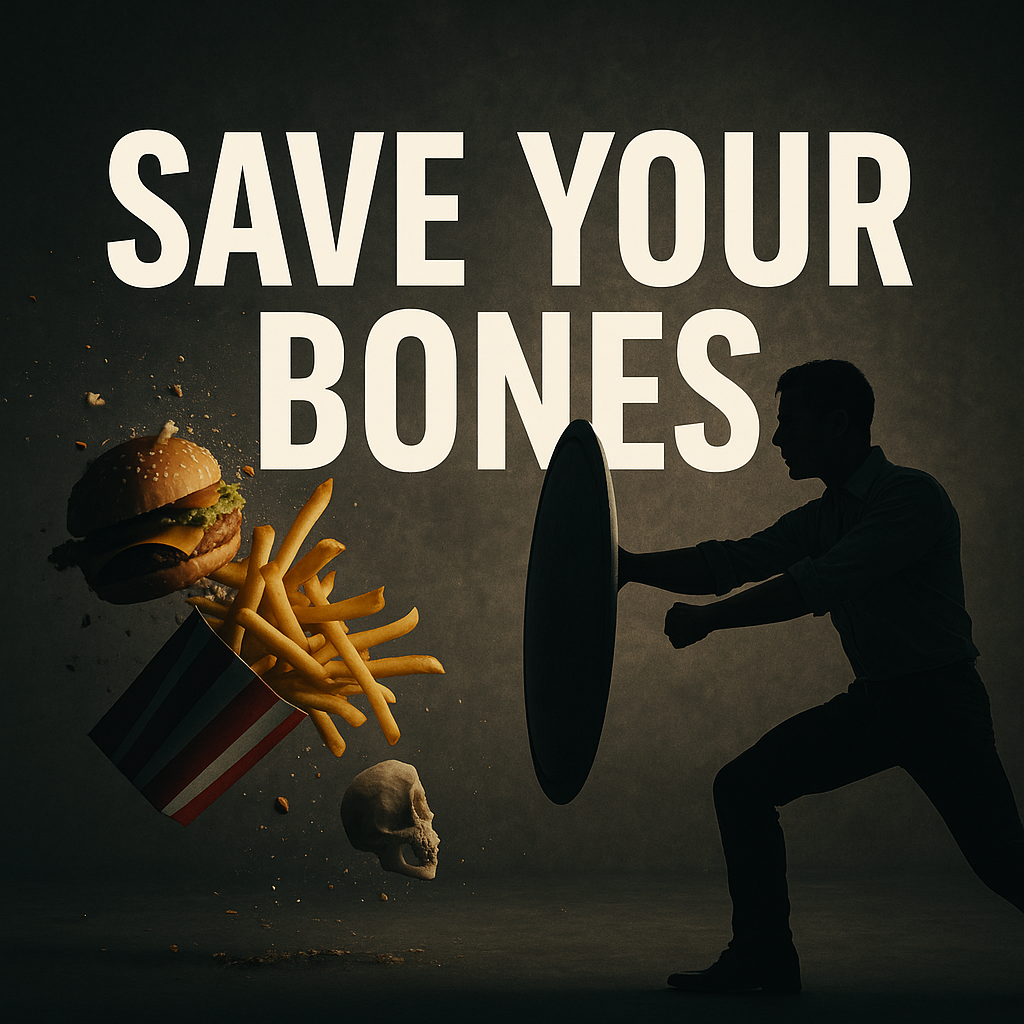
The Phosphate Paradox: Build Bones without Speeding Up Aging
Share ❤️
We grow up hearing that minerals like phosphate are essential for strong bones and teeth. It’s true—without phosphate your skeleton would be fragile. But there’s an ugly side most people never hear about: when phosphate piles up, it hardens blood vessels, ignites inflammation and accelerates the aging process. In our modern diet, hidden additives have made phosphate overload the norm. I’m here to flip that myth and show you how to keep this mineral working for you instead of against you.
Solution #1: Balance phosphate with calcium
Inside your body, a hormone called FGF‑23 and a protein called Klotho act like a thermostat for phosphate. When you eat too much, they signal your kidneys to flush the excess. Disrupt this system and you get hyperphosphatemia—hardening arteries and premature aging. Animal studies even show that knocking out FGF‑23 or Klotho causes early aging, but simply lowering phosphate in the diet reverses many of those problems (study link). The fix isn’t to avoid phosphate entirely; it’s to pair it with its natural partner, calcium. Leafy greens, dairy, and small fish with edible bones neutralise phosphate’s corrosive edge.
Solution #2: Slash hidden additives
Most processed foods are loaded with phosphate additives that never show up on the label. Processed meats, deli slices, canned fish, soft drinks, packaged baked goods and fast food are some of the worst offenders. These additives give foods longer shelf life and a “juicier” texture, but they quietly jack up your phosphate intake beyond anything your ancestors ever ate. Choosing fresh meats, homemade broths and unprocessed staples cuts this unintentional overdose.
Solution #3: Eat whole foods and stay hydrated
The simplest way to keep phosphate under control is also the least glamorous: cook real food and drink enough water. Root vegetables like potatoes and carrots, fresh fruit, dairy, eggs and gelatin provide satisfying energy without forcing your kidneys into overdrive. Hydration matters because your kidneys are the exit door for excess phosphate—if you’re chronically dehydrated they can’t do their job.
Solution #4: Support with collagen and broth
Many people eat lots of muscle meat while ignoring the connective tissues our ancestors prized. Collagen‑rich broths or gelatin supplement the amino acids that balance the phosphorus load of meat. Adding a scoop of gelatin to a stew or sipping bone broth alongside a steak helps protect your bones and blood vessels from the long‑term wear and tear of high phosphate.
Truth hurts before it heals. Phosphate is both a builder and a destroyer—it’s the dose and context that determine which side you get. By balancing it with calcium, ditching hidden additives, eating whole foods and embracing collagen, you can keep your bones strong without accelerating your own expiration date. Your future self will thank you.










